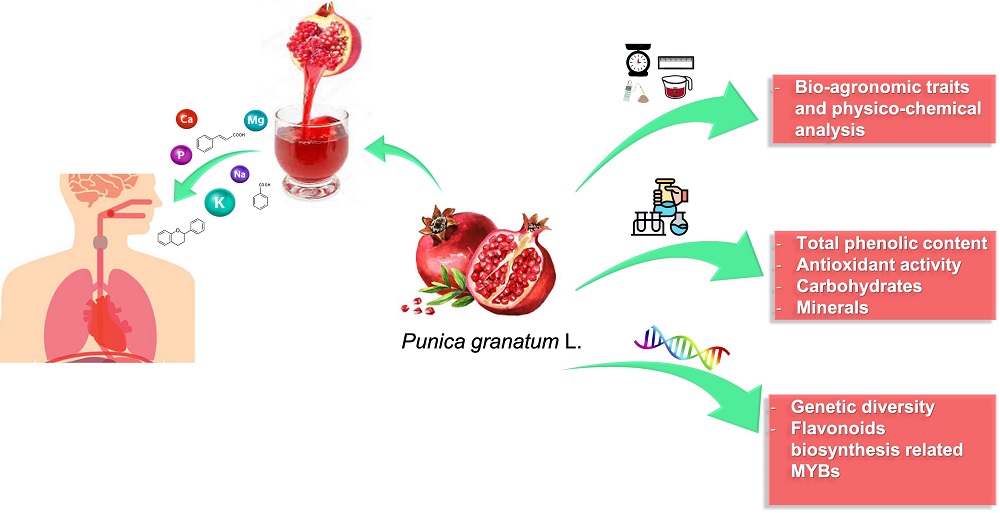The nutraceutical value of pomegranate in the treatment of many neoplastic, cardiovascular, viral, inflammatory, metabolic, microbial, intestinal, reproductive and skin diseases is well-documented and is linked to its richness in phenolic compounds. This study aims to evaluate nutraceutical and genetic diversity of novel pomegranate genotypes (G1-G5) in comparison to leading commercial pomegranate varieties i.e. ‘Wonderful’, ‘Primosole’, ‘Dente di Cavallo’ and ‘Valenciana’. Morphometric measurements were carried out on fruits, accompanied by chemical characterization and the development of four new polymorphic SSR markers involved in the flavonoid pathway. The cultivars displayed a marked variability in the weight and shape of fruits, as well as in the weight of arils and juice yield. The highest level of total phenolic content and antioxidant activity was found in ‘Wonderful’ and G4, while the lowest was in ‘Dente di Cavallo’. Furthermore, the results showed that the pomegranate juice, is an excellent source of minerals, especially potassium, which plays a key role in organ functioning. The new flavonoid-related markers effectively differentiated the cultivars with the same diversity pattern as morpho-chemical characterization, so the SSRs developed in the present study can be used as a rapid tool for the identification of pomegranate cultivars with relevant nutraceutical traits.

